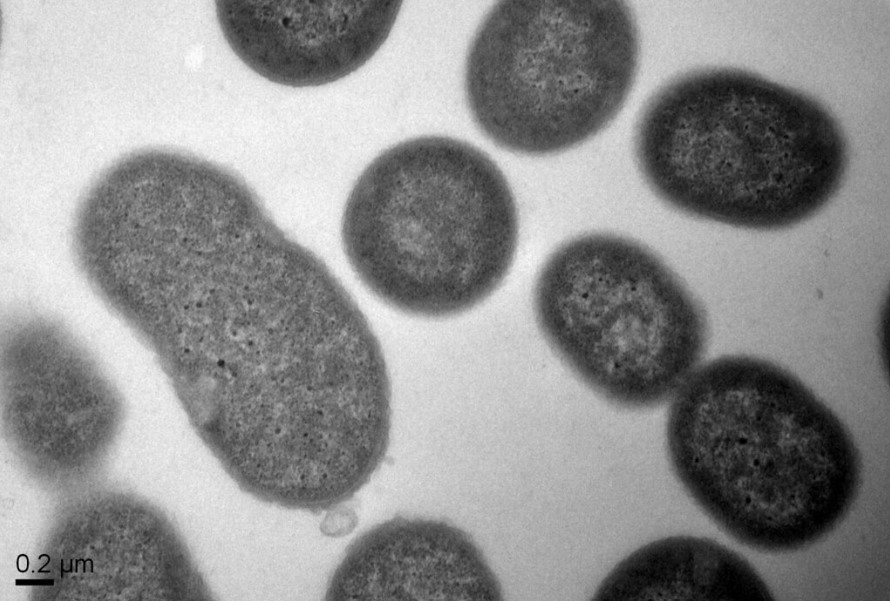How did Elon Musk grow his hair back? 6 Options
If you are currently reading this article, you’ve probably noticed that Elon’s hair has changed quite a lot and looks

While going through your morning routine and brushing your hair, it’s possible you may notice more hair left in your brush than you’re used to. Some hair loss is normal, but if you begin to notice signs of balding — including overall thinning at the top of your head, notable bald spots, or clumps of hair falling out — it can leave you feeling alarmed and distressed. These feelings can seriously impact your self-image and confidence.
Hair loss can often be thought of as a strictly male condition, but a large percentage of those who experience it are women. In fact, as noted in research published in Clinical Interventions in Aging, just under half of all women go through life with a full head of hair. Nevertheless, the perception that hair loss only affects males can leave women impacted by it in a difficult situation.
There are many different causes of hair loss in women, and addressing the situation requires identifying which apply to you. This article will discuss five of the most common causes of hair loss, then provide advice on mitigating them. Read on to learn how you can take control of this condition.
Anyone who has worn a ponytail for a long period of time knows about the annoyance of “ponytail headaches.” However, it’s important to understand that the constant pulling associated with a hairstyle like this may lead to hair loss. This is because certain hairstyles can cause traction alopecia — a form of hair loss caused by pulling of the scalp, which weakens the hair root and follicle.
There are many signs that your hairstyle is causing too much stress on your hair. These include:
To avoid this type of hair loss, consider changing up your hairstyle and avoid putting undue stress on your hair follicles. Tight ponytails, braids, or buns can lead to traction alopecia. The excessive use of hair extensions, wefts, or clip-ins can also cause hair loss over time.
The way you take care of your hair can also impact your hair health. Brush rollers, when applied too tightly, can cause alopecia. Even regular brushing can cause hair loss if done too vigorously.
Instead of regularly doing the above, try to find alternative ways to style your hair. Women with straight hair can simply wear it behind or over their shoulders, and loose braids are still not out of the question. Those with curly hair might try wearing their hair naturally. These are only a few examples of your options going forward.
If you’ve experienced notable hair loss, you might find that your styling options are limited. In this case, it can be wise to invest in hair growth shampoo or hair thickening fibers. These can improve the appearance of your hair and widen your hairstyling options.
A poor diet can lead to malnutrition. This refers to deficiencies in your vitamin and mineral intake that can lead to major side effects like weak muscles and bones, a compromised immune system, and hair loss.
Are you starting to experience hair loss? It may be time to assess your diet for any gaps in your caloric, protein, vitamin, and mineral intake. Nutrients that are associated with hair health include:
In order to address this cause of hair loss, it can help to ensure you’re getting a well-rounded diet, complete with the nutrition you need to mitigate the effects of hair loss. This means a diet rich in natural foods — primarily high-fiber carbs, fruits, veggies, and lean meats. Ensure that you are getting enough food each day and that you’re limiting junk foods.
Seek to include foods with nutrients that you’ve neglected. For instance, androgenetic alopecia and telogen effluvium, two conditions commonly associated with female pattern baldness, may be mitigated with increased intake of vitamin D, according to research. Foods high in this vitamin, like dairy products, fatty fish, or eggs, are useful additions to your diet to address this issue. Most multivitamins include this as well.
Of course, it’s always wise to discuss any dietary changes with your doctor. It may be beneficial to consult with your physician or nutritionist to discuss appropriate diet changes or supplements to address this issue. They may be able to help you assess your diet, identify gaps in your vitamin/mineral intake, and determine which foods or supplements may be able to help you maintain optimal hair health.
It’s not uncommon for women to experience some degree of hair loss after stressful events. This is evident in women who have undergone traumatic events such as giving birth (though hormonal changes are also to blame for this) or experiencing abuse.
To glean why this occurs, it’s important to understand how hair grows. Human hair follicles undergo several phases throughout their lifecycle. It starts in its anagen phase — the longest phase at up to seven years and also the time during which your hair grows in length. This is followed by a transition phase and a resting phase. Finally, it sheds during its exogen phase, which occurs to roughly 100 hairs each day for the average human.
Stress disrupts this cycle. According to an article published in The Atlantic titled “Why Stress Makes Your Hair Fall Out:
“Stress is thought to disrupt this process, prematurely kicking hairs out of the growth period. Rather than leaving anagen at their own pace, they all go through the resting phase at the same time and fall out together in bigger numbers — up to 10 times more than usual … “
Stress can, as a result of this disruption, cause several different types of hair loss, including telogen effluvium, alopecia areata, and trichotillomania.
While some level of stress is inevitable in life, there are a few ways you can reduce stress during and after traumatic periods:
These are just a few of the methods you can employ to manage stress and, hopefully, mitigate its potential impacts on your hair health.
Certain toxins, medications, or medical procedures can also lead to hair loss. In certain circumstances, hair loss is an expected side effect, as is the case with many individuals who undergo chemotherapy.
There are many types of drugs that may cause hair loss, and WebMD has a comprehensive list of them. Among the items on this list, you’ll find:
There are many more examples, and each has been linked to hair loss in some instances, though further research is required to understand why this is the case.
Hair loss can be an alarming symptom, but it is vital to discuss your symptoms with your physician before discontinuing the use of certain medications. Maintain an ongoing dialogue with your doctor about symptoms as they occur; keeping a log of your side effects is a useful practice for this purpose. Your doctor may also be able to help you determine whether your hair loss is indeed related to the medication in question. If it is, they should be able to work with you to discover an alternative medication that does not cause hair loss.
If the cause of your hair loss is not associated with one of the above factors, it may be connected to your genetics. If your family has a history of hair loss, you may also be susceptible to it. This is a diagnosable condition, so it’s important to bring this up with your doctor.
One of the most common forms of hair loss is due to hereditary-pattern baldness. This is a natural condition caused by a combination of genetic, hormone, and age-related factors. This type of baldness starts with thinning hair, then progresses over time to complete hair loss. For women, the most common place for hair loss to occur on the top of the head, down the middle — it may appear that the part of your hair is widening.
While this cause of hair loss if out of your control, you can still take action to mitigate its effects. Certain medications, such as minoxidil, can slow further hair loss. There are also many professional hair thickening products that can keep your hair looking and feeling healthy, even if your genetics are working against you.
Solve thin hair immediately. The visible scalp will disappear instantly.
If you are currently reading this article, you’ve probably noticed that Elon’s hair has changed quite a lot and looks

How Does Swimming Affect Your Body? Individuals swim for a variety of reasons including recreation, competition, and health. Regardless of

Lifestyle Tips For Better Overall Health The way you go about your daily life has a massive and direct impact

How Do Infections Work and What Are Their Effects on the Body? From Hippocrates’s writings about the spread of disease

How To Make a Good Impression in a Job Interview When it comes to getting a job, interviewing may seem